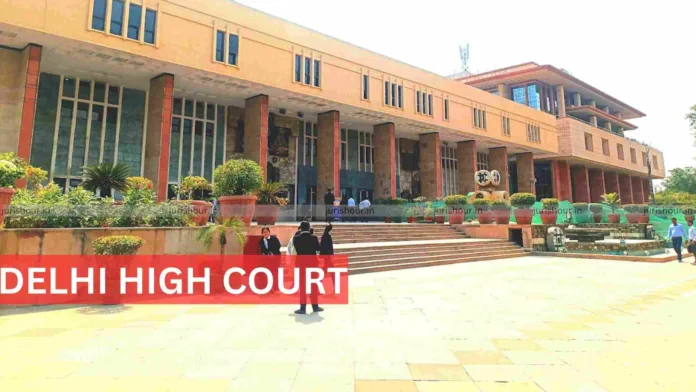The Delhi High court has held that communicating an order by email would be sufficient service under section 169 of GST Act.
The bench of Justice Prathiba M. Singh and Justice Shail Jain have observed that issuance of the order is what is required under Section 74(10) of the Act and service through a mode which would constitute deemed service of the order is not mandated. Therefore, communicating an order by email would be sufficient service in terms of Section 169 of Act for constituting issuance of an order. Rule 142 is also clear in the initial portion where it uses the expression, summary of the order issued under Section 74 of the Act.
The dispute arose from a show cause notice (SCN) issued in August 2024 to 90 entities, including Rishi Enterprises, after the Directorate of Analytics and Risk Management (DGRAM) flagged suspicious transactions linked to M/s D S Enterprises, a non-existent firm allegedly created to generate bogus invoices and fraudulently pass on Input Tax Credit (ITC).
Investigations revealed that D S Enterprises had issued invoices worth Rs. 26.42 crore to 229 recipients, out of which 89 were under the jurisdiction of Delhi CGST North. Rishi Enterprises, listed as Noticee No. 15, was accused of availing ITC of Rs. 25.93 lakh against goods-less invoices.
On February 11, 2025, the adjudicating authority confirmed the tax demand, interest, and an equivalent penalty against the petitioner.
Rishi Enterprises, represented by Advocate Abhishek Garg, argued that a single SCN for multiple financial years was impermissible. The SCN and final order were time-barred, as the limitation period had lapsed. The order was uploaded on the GST portal after the deadline (11th February 2025), beyond the five-year statutory limit. The alleged “service of order” via email was invalid under Section 169 of the CGST Act.
The petitioner further relied on precedents, including HCL Infotech Ltd. (Allahabad HC) and L&T Hydrocarbon Engineering Ltd. (Gujarat HC), to argue that the proceedings were vitiated by limitation and procedural irregularities.
The Department, represented by Senior Standing Counsel Aditya Singla, countered that Consolidated SCNs for multiple years are permissible in ITC fraud cases, citing the Delhi HC’s July 2025 ruling in Ambika Traders.The order was signed on January 31, 2025, and communicated to the petitioner via email on February 4, 2025, which constituted valid service. The delay in uploading the DRC-07 summary on the GST portal did not render the order invalid, as held in Suresh Kumar v. CGST Delhi North (Delhi HC, August 2025).
The court held that Fraudulent ITC claims often involve linked transactions across financial years, justifying consolidated notices. The term “issued” under Section 74(10) requires only that the order be signed and communicated within limitation; uploading on the portal is a subsequent compliance step. Service via registered email address is a valid mode under Section 169 of the Act. The case involved disputed facts requiring factual adjudication, making writ jurisdiction inappropriate.
The Court concluded that the extended limitation under Section 74 was rightly invoked, given the allegation of fraud.
While dismissing the writ petition, the Bench granted Rishi Enterprises the liberty to file an appeal under Section 107 of the CGST Act by September 30, 2025, subject to the mandatory pre-deposit. The appellate authority has been directed not to dismiss the appeal on limitation grounds if filed within this time.
Case Details
Case Title: Rishi Enterprises Versus Additional Commissioner Central Tax Delhi
North
Case No.: W.P.(C) 4374/2025 & CM APPL. 20152/2025
Date: 20th August, 2025
Counsel For Petitioner: Abhishek Garg
Counsel For Respondent: Aditya Singla

